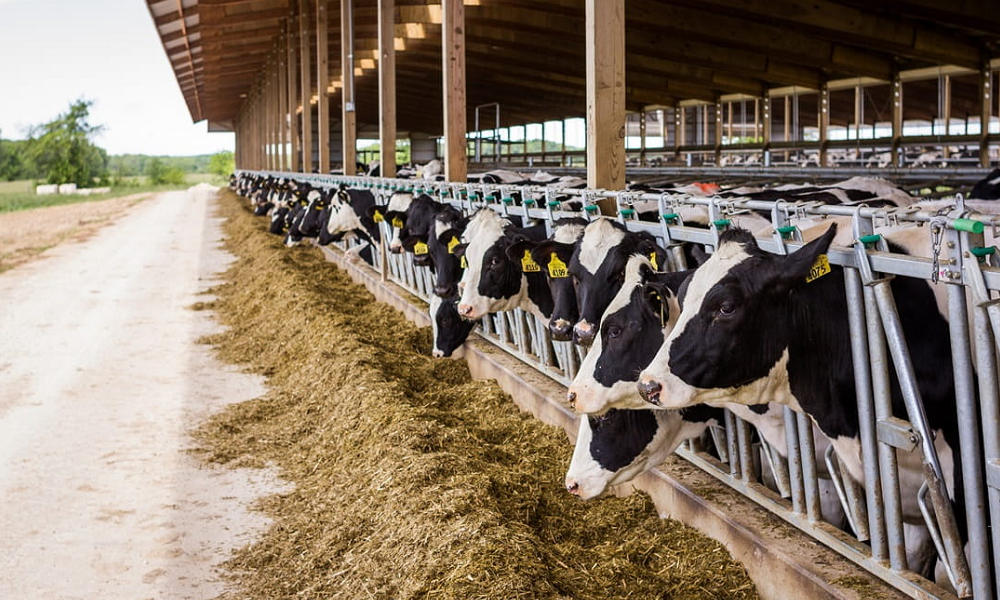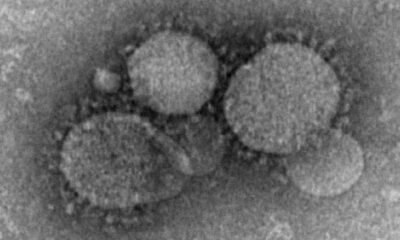US News
2 dairy workers in California tests positive for H5N1 bird flu

Two workers at dairy cattle facilities in California have tested positive for H5N1 bird flu, making them the first human cases in the state, according to local health officials. The workers have only mild symptoms and the risk to the general public is believed to be low.
Both individuals are workers at Central Valley dairy facilities experiencing outbreaks of H5N1 bird flu, according to the California Department of Public Health (CDPH). The individuals, whose ages and sex were not disclosed, reported only mild symptoms, including conjunctivitis.
“These are the first human cases of bird flu identified in the state and are both in Central Valley individuals who had contact with infected dairy cattle,” the department said in a statement on Thursday. “There is no known link or contact between the two cases, suggesting only animal-to-human spread of the virus in California.”
In accordance with CDC guidance, the individuals are being treated with antiviral medication and are staying home.
“Ongoing health checks of individuals who interact with potentially infected animals helped us quickly detect and respond to this possible human case,” Dr. Tomás J. Aragón, the state’s public health officer, said before the second case was confirmed. “We want to emphasize that the risk to the general public is low, and people who interact with potentially infected animals should take prevention measures.”
Health officials say the risk to the general public remains low but people who interact with infected animals, particularly dairy and poultry farm workers, are at higher risk of being infected with bird flu. Those workers are advised to use personal protective equipment, or PPE, such as N95 masks, eye protection and gloves.
Pasteurized milk and dairy products continue to be safe to consume, as pasteurization is fully effective at inactivating the bird flu virus, according to CDPH. As an added precaution, and according to longstanding state and federal requirements, milk from sick cows is not permitted in the public milk supply.
LINK: A list of all human cases of H5N1 bird flu since 2021
A newer strain of H5N1, clade 2.3.4.4b, has raised concern due to its global spread and the growing number of cases in mammals, including outbreaks among dairy cows in the U.S. Only a limited number of human cases have been reported so far after contact with infected birds or cows.
Earlier this week, officials confirmed that H5N1 bird flu has so far been found at 44 dairies across California, the nation’s largest producer of dairy.
Twenty-nine human cases of H5N1 bird flu have been reported so far this year, including 16 in the U.S., 10 in Cambodia and one each in Australia, Vietnam and China. Only the U.S. cases – 10 in Colorado, 2 each in Michigan and California, and one each in Texas and Missouri – were caused by the newer variant, clade 2.3.4.4b.
Last month, a patient in Missouri tested positive for H5N1 bird flu despite having no known links to infected animals. The patient was hospitalized but has since recovered. The source of the infection is still unknown but no other cases have been reported.

-

 Health4 days ago
Health4 days agoFrance confirms 2 MERS coronavirus cases in returning travelers
-

 Health6 days ago
Health6 days ago8 kittens die of H5N1 bird flu in the Netherlands
-

 US News1 week ago
US News1 week agoExplosion destroys home in Oakland, Maine; at least 1 injured
-

 Entertainment4 days ago
Entertainment4 days agoJoey Valence & Brae criticize DHS over unauthorized use of their music
-

 Legal1 week ago
Legal1 week ago15 people shot, 4 killed, at birthday party in Stockton, California
-

 US News6 days ago
US News6 days agoFire breaks out at Raleigh Convention Center in North Carolina
-

 Health1 week ago
Health1 week agoMarburg outbreak in Ethiopia rises to 12 cases and 8 deaths
-

 Health5 days ago
Health5 days agoEthiopia reports new case in Marburg virus outbreak




